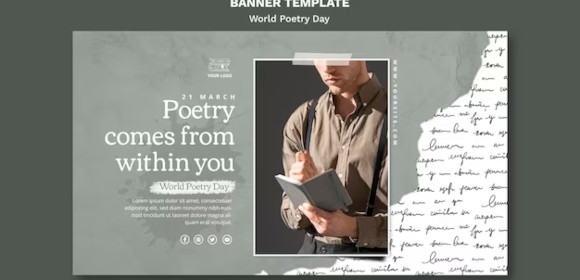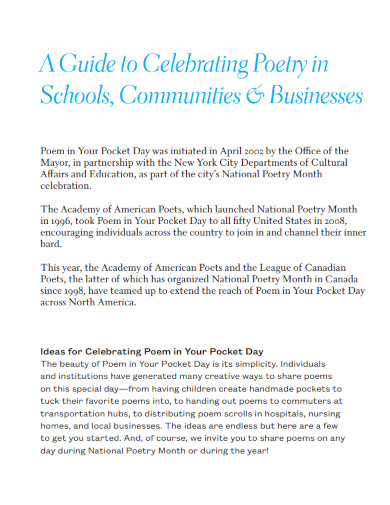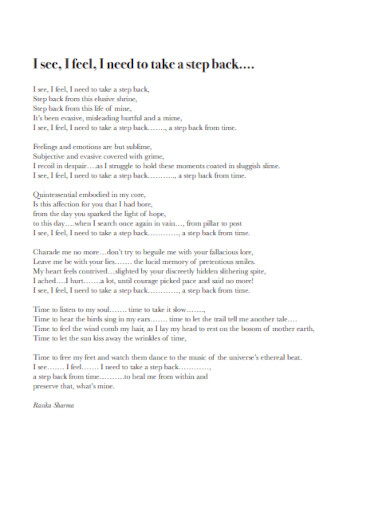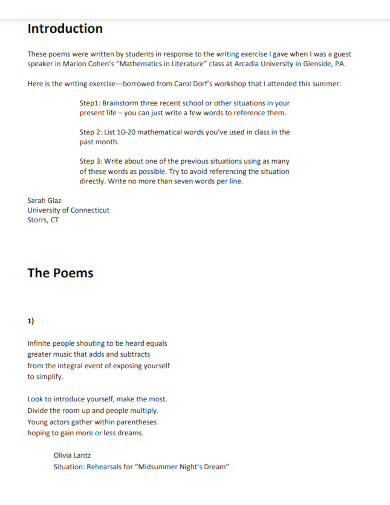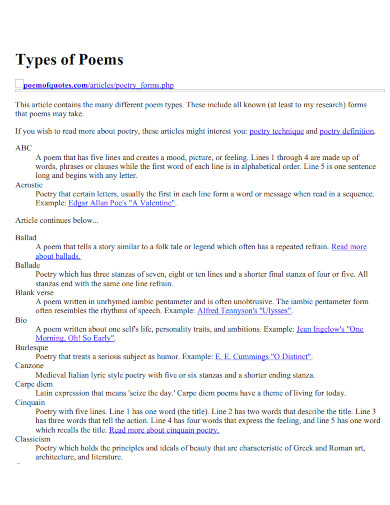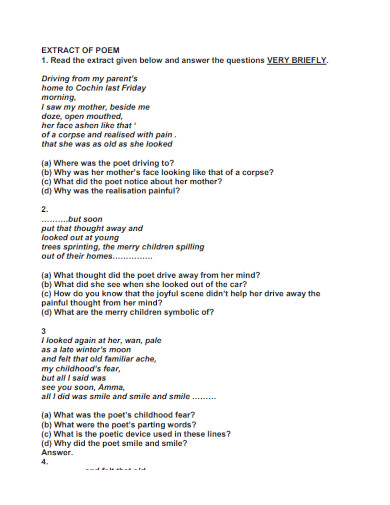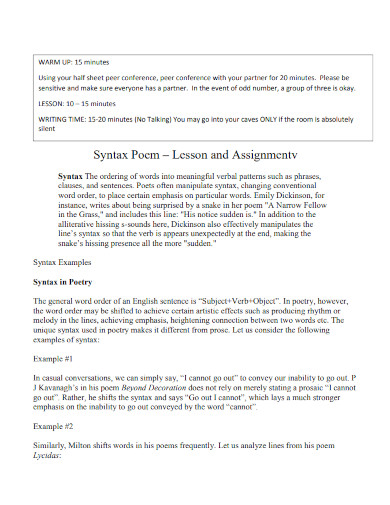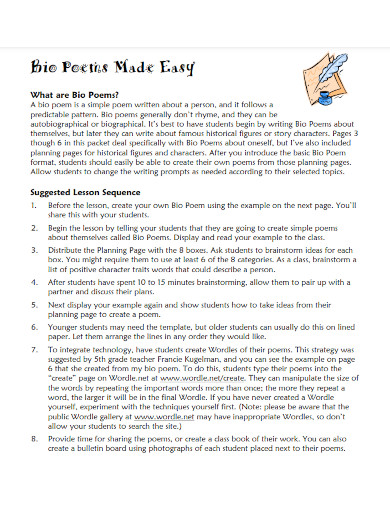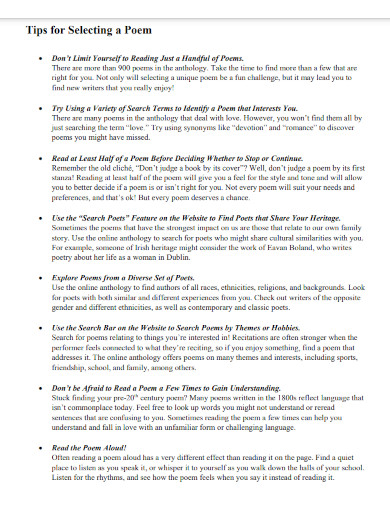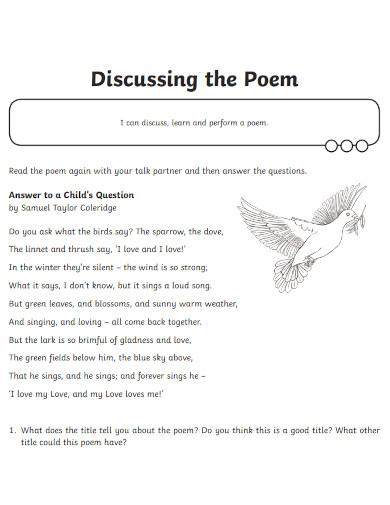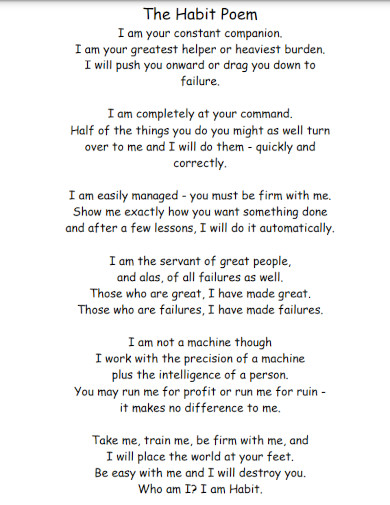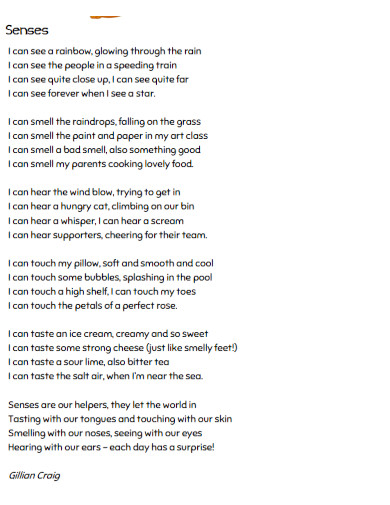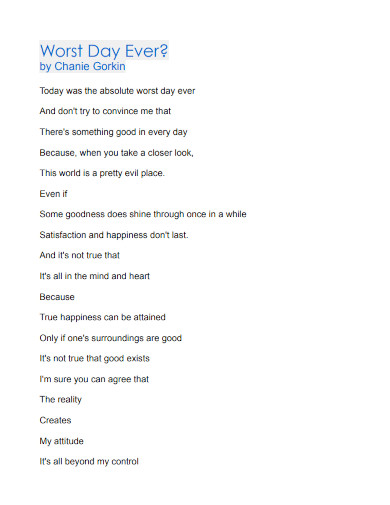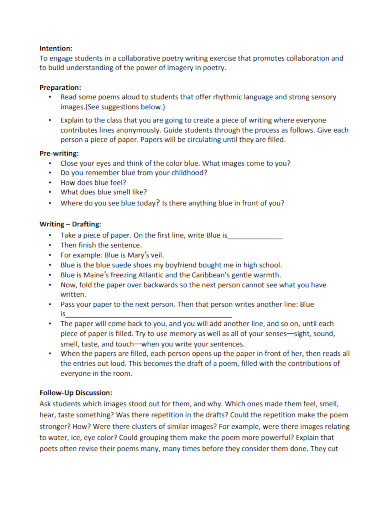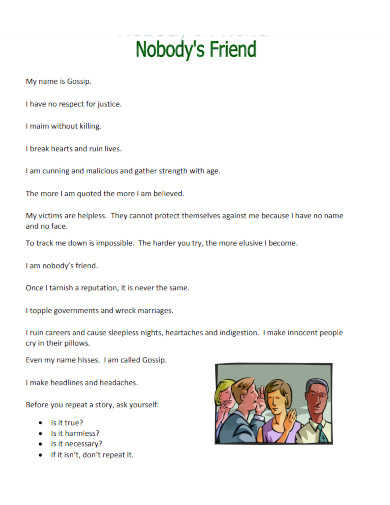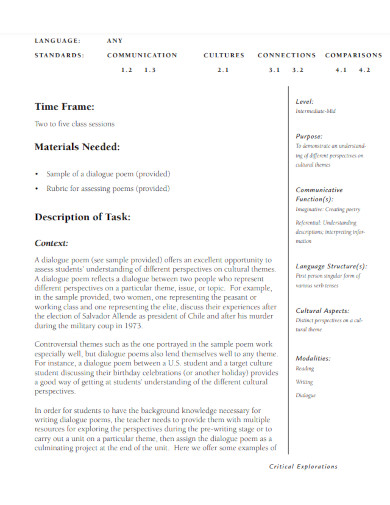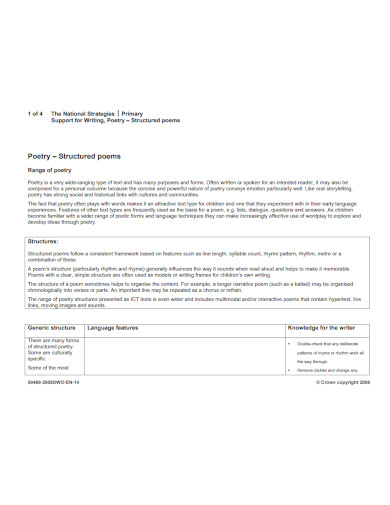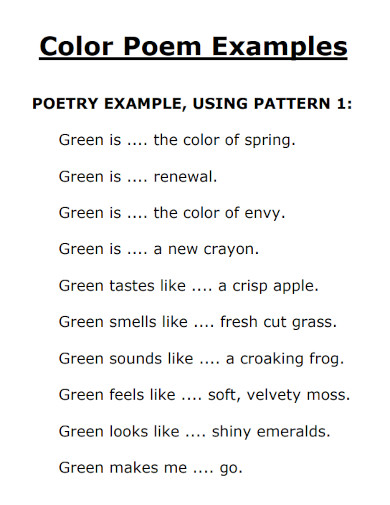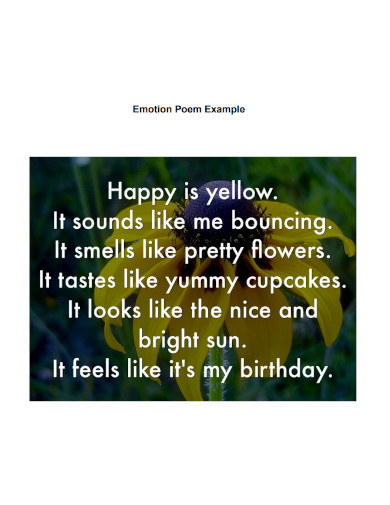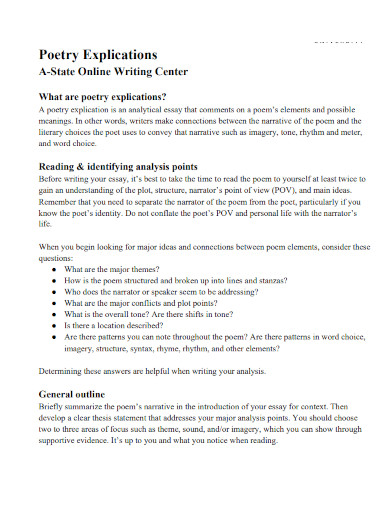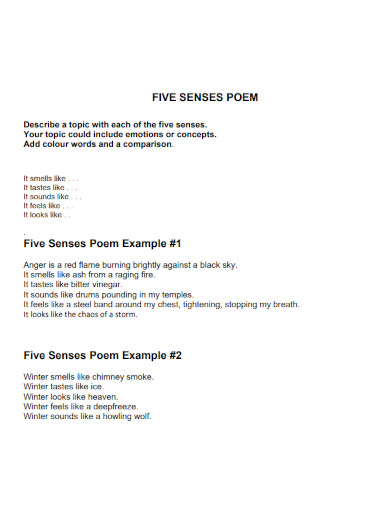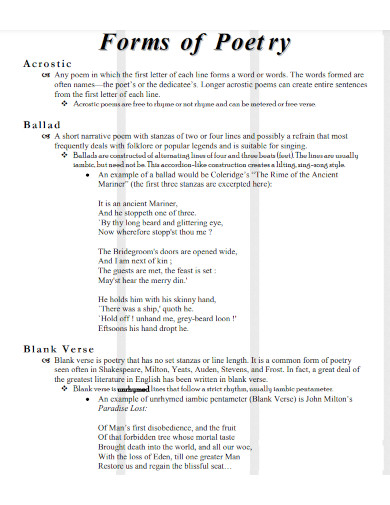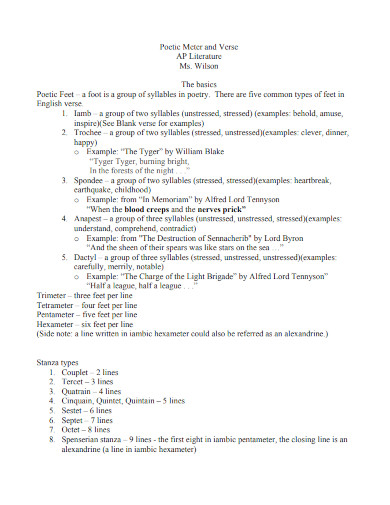21+ Poem Examples to Download
Writers can create worlds, experiences, and feelings through their writings and arrangement of words. They can lend their perspective, creativity, and imagination to their readers and listeners. One of the best ways a writer can creatively express themselves and their perspective is through a poem.
1. Poem in Your Pocket Day
2. Poems of Healing Template
3. Math-Poems by Students
4. Types of Poems
5. Extract of Poem
6. Syntax Poem
7. Bio Poems Made Easy
8. Tips for Selecting a Poem
9. Discussing the Poem
10. Habit Poem Template
11. Senses Poems
12. Worst Day Poem
13. Collaborative Poem
14. Gossip Poem
15. Dialogue Poems
16. Structured Poems
17. Color Poem Examples
18. Emotion Poem Example
19. Poetry Explications
20. Five Senses Poem
21. Forms of Poetry
22. Poetic Verse Examples
What Is a Poem
A poem is a written arrangement of various words that may or may not follow a specific pattern, structure, and rhyme scheme. The objective or goal of a poem is to convey a specific message, feeling, concept, or experience. A poem is very subjective and has contexts, themes, and tones that the writer and the reader get when they read the poem.
How to Write a Poem
A well-written poem can touch and affect the people who listen and read the poet’s words. The writer or author can creatively create a poem by infusing various literary elements and devices like similes and metaphors to improve the quality and relatability of the poem.
Step 1: Select the Type of Poem You Will Write
Before you will write the content of the poem, you must first select the specific subtype of poem you are going to write. This is very important as each subtype of the poem has a specific poetic outline or outline format, writing scheme, and other specific factors.
Step 2: Plan Out Your Concept or Poem
After you have selected the type of poem you will write, you will need to plan out the overall concept of your poem. This can include introspection, research, organization, mind-mapping concepts, and brainstorming.
Step 3: Create an Outline for Your Poem
If you like planning or want to have a base for your poem, then you may opt to create an outline of the content of your poem. This will not only help you go through writing blocks, but the outline will also help you guide your writing in a specific direction.
Step 4: Write the Poem Based on the Outline and Research
When you have completed all the steps above, you will now write your poem. Be sure to properly pace the content of your poem and the usage of various literary devices.
Step 5: Edit Your Poem
After you have completed writing your poem, you should reread your poem and edit it. You can use a test audience and discuss the poem with them to help improve the quality of your poem.
FAQs
There are many subcategories of poems that are organized based on their form, rhyming pattern, and word count. These subcategories can be further grouped into two categories called a free-form poem and a structured poem. A free-form poem is a specific type of poem that does not have a specified structure, word count, and rhyme scheme. Many slam poems fall under this specific category. This is a juxtaposition of a structured poem, which is a specific type of poem that forces the artist or author to follow a specific and defined format or structure.What is the difference between a free-form poem and a structured poem?
One can find many real-life examples of masterfully written poems around the world that transcends culture, ethnicity, and ethnic groups. Robert Frost is a famous poet who has written many poems; one of his most famous poems is named “The road not taken”. Lewis Carroll, the author of Alice in Wonderland, has also written poems, one of which was featured in his book called “The Jabberwocky.” Some ancient poems harken back to epic myths and legends, the Nordic “Poetic Edda” has stanzas that detail the rise and fall of gods.What are real-life examples of poems?
The length of the poem is wholly dependent on the chosen type of poem the person will write. If the writer wants to write a free-form poem, then there is no upper limit to the length of the poem. The only caveat in free-form poetry is that the poem has to be digestible, which means that the poem has to be both interesting and understandable. Structured poems, on the other hand, have specific lengths attached to the writer’s chosen subtype. For example, if the writer has chosen to write a haiku poem, then they will need to limit the length of their poem to three lines.What is the ideal length of a poem?
A poem is a type of consumable literature that may have a specific structure and composition. The poem is the writer’s effort to try and express a specific sentiment and concept to an audience. When the poem is written very well, then it can impact the audience in many different ways.


